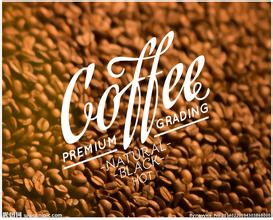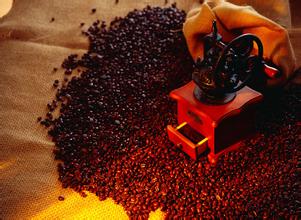Us media expose Kopi Luwak industry chain: civets are generally enslaved and abused
Since 2013, at least 13 retailers, including Harrods and Selfridges, have taken cat poop coffee off their shelves or promised to investigate the production process. But regulating the cat poop coffee industry isn't easy: animal rights activists say it's hard to trace the origins of cat poop coffees, harder still to determine whether they involve abuse of civets wild civets use coffee beans as part of a balanced diet, while captive civets are overfed immature coffee beans. Wild civets tend to be nocturnal, while captive civets are kept in claustrophobic sunny spaces. When provoked, they fight. Many captive civets get sick or die from stress, said Neil DeCruz, wildlife researcher for the nonprofit World Society for the Protection of Animals and co-author of the report: "Unfortunately, many visitors are blind to the cruelty of captive civets making cat poop coffee, and they even queue up to take pictures of civets and share them on Social networks." Traditionally, cat poop coffee is made from coconut cat waste collected in the wild. But its high price has led to wild civets being captured and kept in captivity on coffee plantations. A recent report published in the journal Animal Protection assessed the survival of 48 civet cats on 16 plantations. The cat poop coffee industry is "a slavery industry," the report said.
Even in the world of fine coffee and nitrogen cold-extracted coffee, cat poop coffee (also known as "civet coffee") is the benchmark for luxury coffee, according to a report published on July 24 on the US quartz financial website entitled "The world's most expensive coffee is a nightmare for the animals that produce this coffee." This coffee is processed from partially digested coffee beans excreted by coconut cats (a civet endemic to Southeast Asia), which has a stronger flavor and a lighter acidity. Cat poop coffee prices have fallen since 2013, but they remain as high as $200 to $400 a kilo and are increasingly sought after by tourists

Important Notice :
前街咖啡 FrontStreet Coffee has moved to new addredd:
FrontStreet Coffee Address: 315,Donghua East Road,GuangZhou
Tel:020 38364473
- Prev

Water content in the roasting process of coffee-Starbucks Italian roasted coffee beans
Water content in the process of coffee roasting Starbucks Italian roasted coffee beans, whether new or old beans, have its unique baking curve, we must accurately judge the bean and bean time, and master the best flavor. In the process of recording the baking curve, carefully and blindly test each batch of baked beans, record them, and accurately grasp the key elements, you can easily get the mouths that coffee beans should have.
- Next

High-quality coffee comes into the life of Chinese people, and people know fine coffee.
In order to enable domestic consumers to better understand the charm of fine coffee, coffee has established a comprehensive product system and experience center, and at the same time introduced a variety of high-quality coffee raw beans from the origin of coffee. Taiwan's patented locomotive smokeless coffee roaster and small steel cannon coffee roaster are introduced to provide domestic consumers and coffee lovers with the best quality products.
Related
- Beginners will see the "Coffee pull flower" guide!
- What is the difference between ice blog purified milk and ordinary milk coffee?
- Why is the Philippines the largest producer of crops in Liberia?
- For coffee extraction, should the fine powder be retained?
- How does extracted espresso fill pressed powder? How much strength does it take to press the powder?
- How to make jasmine cold extract coffee? Is the jasmine + latte good?
- Will this little toy really make the coffee taste better? How does Lily Drip affect coffee extraction?
- Will the action of slapping the filter cup also affect coffee extraction?
- What's the difference between powder-to-water ratio and powder-to-liquid ratio?
- What is the Ethiopian local species? What does it have to do with Heirloom native species?

